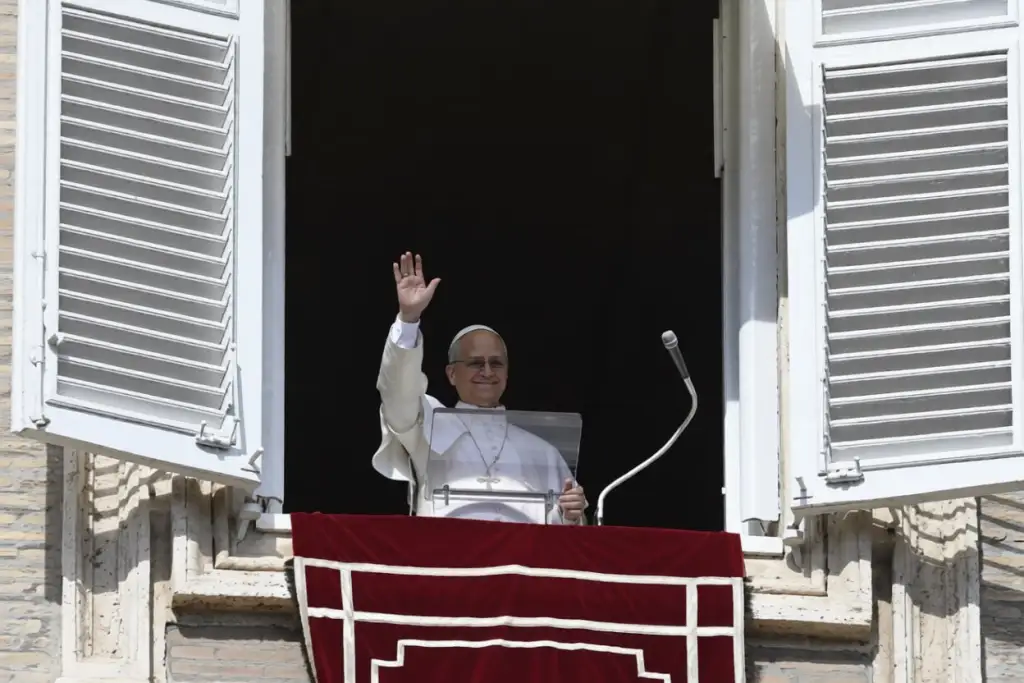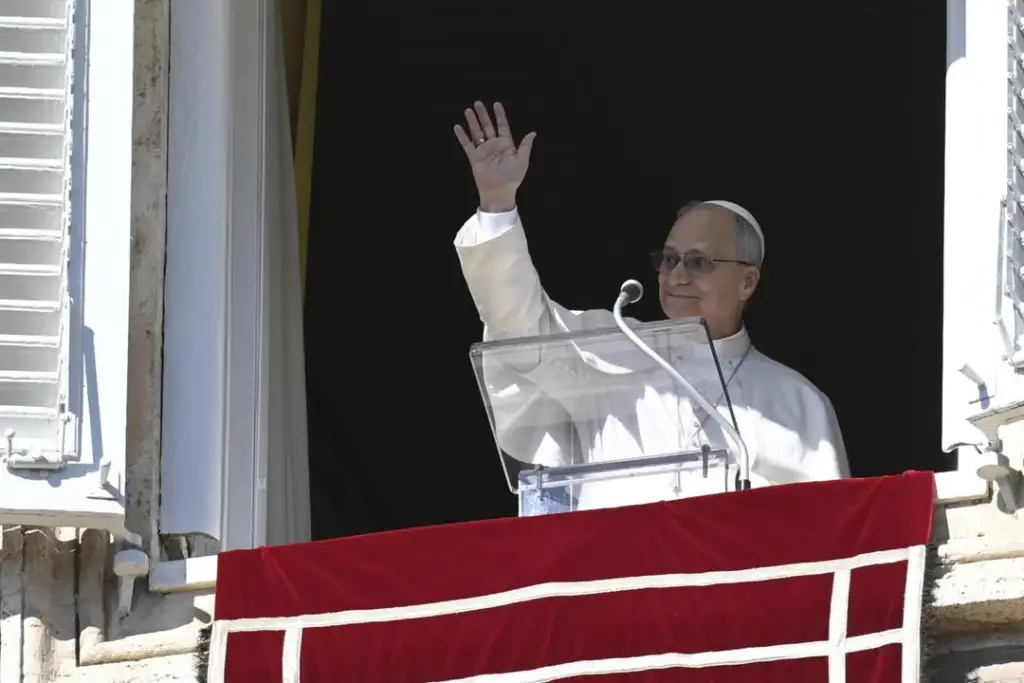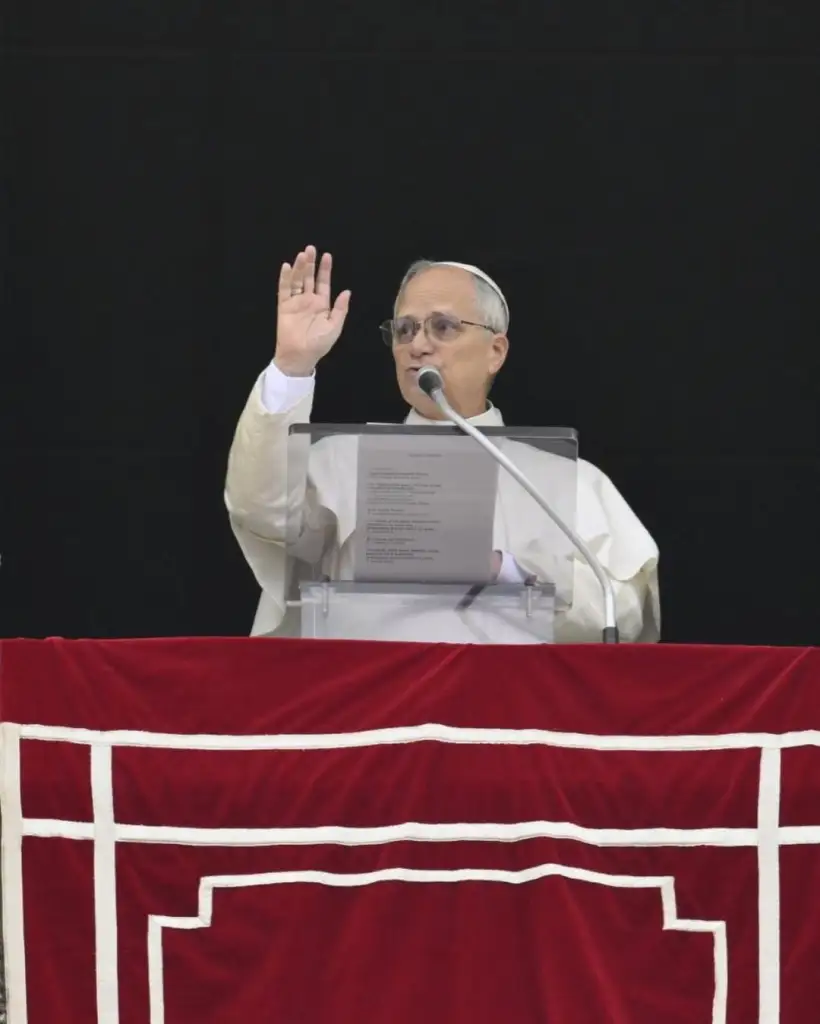‘No Homilies That Put Parishioners to Sleep,’ Urges Pope Francis
Full Text of Pope Francis' Angelus Address on 3rd Sunday of the Word of God

Please, no homilies that put parishioners to sleep!
Pope Francis stressed this to priests during his Angelus address with the faithful gathered in St. Peter’s Square on this Third Sunday of the Word of God, Jan. 23, while also reminding that re-familiarizing one’s self with the Gospel brings God’s joy anew!
Recalling how today’s Gospel presents the beginning of Jesus’ preaching, the Pontiff underscored the importance of inspiring people with the Word of God, and engaging their interest. Jesus, he suggested, captivated everyone’s interest, and when preaching His Word today, it has to do the same.
Must Rouse Hearts, Not Be Abstract
“The Word of God,” the Jesuit Pope highlighted, “is always ‘today.’ It begins with a ‘today’: when you read the Word of God, a ‘today’ begins in your soul, if you understand it well.”
Sometimes it happens, the Pope lamented, “that our sermons and our teachings remain generic, abstract, not touching the soul and the life of the people.” Asking why this is, he responded it is because “they lack the power of this today,” “do not move the heart,” and “everything remains as before.”
“What Jesus fills with meaning by the power of the Spirit, is today,” Francis said, noting that this ‘today’ “speaks to you.”
“Even many homilies – I say it with respect but with pain – are abstract, and instead of awakening the soul, they put it to sleep. When the faithful start looking at their watches – “when is this going to end?” – they put the soul to sleep,” Pope Francis decried.
Words Must Pulsate & Be Relevant to People’s Lives
Preaching, the Pope said, runs the risk of presenting the Gospel in a detached way “as if it were outside time, far from reality.” And this is not the way, the Pope said.
“A word in which the power of today does not pulsate,” he warned, “is not worthy of Jesus and does not help people’s lives.
Francis said that if those who preach want to give lectures or conferences, “let them do so, but elsewhere, not at the time of the homily, where they must give the Word in a way that rouses hearts.”
The Pope went on to thank the preachers and proclaimers of the Gospel “who remain faithful to the Word that rouses the heart, who remain faithful to ‘today.’ Let us pray for them, that they may live the today of Jesus, the sweet power of his Spirit that makes the Scriptures come alive.”
Word Changes Us, Illuminates Our Daily Lives
“The Word of God, is indeed alive and effective,” the Pope underscored, “it changes us, it enters into our affairs, it illuminates our daily lives, it comforts and brings order. Remember: the Word of God transforms an ordinary day into the today in which God speaks to us.”
With this in mind, he suggested–as he has done throughout his pontificate–that all faithful pick up the Gospel and choose each day a small passage to read and re-read.
“Keep the Gospel in your pocket or your bag, to read it on your travels, at any moment, and read it calmly. In time we will discover that these words are made especially for us, for our life. They will help us to welcome each day with a better, more serene outlook, because when the Gospel enters into today’s world, it fills it with God.”
Encouraging faithful again to read a small passage of the Gospel each day, he urged: “Let us familiarize ourselves with the Gospel, it will bring us the newness and joy of God!”
Here is the full Vatican-provided English translation of the Pope’s remarks before the midday prayer:
***
POPE FRANCIS
ANGELUS
Saint Peter’s Square
Sunday, 23 January 2022
_________________________
Dear brothers and sisters, buongiorno!
In the Gospel of today’s liturgy, we see Jesus beginning his preaching (cf. Lk 4:14-21): it is Jesus’ first sermon. He goes to Nazareth, where he grew up, and participates in prayer in the synagogue. He gets up to read and, in the scroll of the prophet Isaiah, he finds the passage regarding the Messiah, who proclaims a message of consolation and liberation for the poor and oppressed (cf. Is 61:1-2). At the end of the reading, “the eyes of all… were fixed on him” (v. 20). And Jesus begins by saying: “Today this scripture has been fulfilled” (v. 21). Let us dwell on this today. It is the first word of Jesus’ preaching recorded in the Gospel of Luke. Pronounced by the Lord, it indicates a “today” that runs through all ages and always remains valid. The Word of God is always “today”. It begins with a “today”: when you read the Word of God, a “today” begins in your soul, if you understand it well. Today. Isaiah’s prophecy dates back centuries, but Jesus, “in the power of the Spirit” (v. 14), makes it relevant and, above all, brings it to fulfilment, and shows how to receive the Word of God: today. It is not like ancient history, no: today. Today, it speaks to your heart.
Jesus’ fellow countrymen are struck by his word. Although, clouded by prejudice, they do not believe him, they realize that his teaching is different from that of the other teachers (cf. v. 22): they sense that there is more to Jesus. What is there? There is the anointing of the Holy Spirit. Sometimes it happens that our sermons and our teachings remain generic, abstract; they do not touch the soul and the life of the people. And why? Because they lack the power of this today; what Jesus “fills with meaning” by the power of the Spirit, is today. Today is speaking to you. Yes, at times one hears impeccable conferences, well-constructed speeches, but they do not move the heart and so everything remains as before. Even many homilies – I say it with respect but with pain – are abstract, and instead of awakening the soul, they put it to sleep. When the faithful start looking at their watches – “when is this going to end?” – they put the soul to sleep. Preaching runs this risk: without the anointing of the Spirit, it impoverishes the Word of God, and descends to moralism and abstract concepts; it presents the Gospel with detachment, as if it were outside time, far from reality. And this is not the way. But a word in which the power of today does not pulsate is not worthy of Jesus and does not help people’s lives. That is why those who preach, please, are the first to experience the today of Jesus, so as to be able to communicate it in the today of others. And if they want to give lectures, conferences, let them do so, but elsewhere, not at the time of the homily, where they must give the Word in a way that rouses hearts.
Dear brothers and sisters, on this Sunday of the Word of God I would like to thank the preachers and proclaimers of the Gospel who remain faithful to the Word that rouses the heart, who remain faithful to “today”. Let us pray for them, that they may live the today of Jesus, the sweet power of his Spirit that makes the Scriptures come alive. The Word of God, is indeed alive and effective (cf. Heb 4:12); it changes us, it enters into our affairs, it illuminates our daily lives, it comforts and brings order. Remember: the Word of God transforms an ordinary day into the today in which God speaks to us. So, let us pick up the Gospel and choose each day a small passage to read and re-read. Keep the Gospel in your pocket or your bag, to read it on your travels, at any moment, and read it calmly. In time we will discover that these words are made especially for us, for our life. They will help us to welcome each day with a better, more serene outlook, because when the Gospel enters into today’s world, it fills it with God. I would like to make a suggestion. On the Sundays of this liturgical year the Gospel of Luke, the Gospel of mercy, is proclaimed. Why not also read it personally, all of it, one small passage each day? A short passage. Let us familiarize ourselves with the Gospel, it will bring us the newness and joy of God!
The Word of God is also the beacon that guides the synodal journey that has begun throughout the Church. As we strive to listen to each other, with attention and discernment – because it is not a question of opinion, no, but of discerning the Word, there – let us listen together to the Word of God and the Holy Spirit. And may Our Lady obtain for us the constancy to nourish ourselves with the Gospel every day.
Pope Francis Calls for World Day of Prayer for Peace in Ukraine
‘Attacks on Benedict Not Justified’, States Dr. Michael Hesemann
Related

“Jesus teaches us that true justice is love”
Exaudi Staff
15 February, 2026
4 min

Pope Leo XIV: “God never rejects us, every wound can heal”
Exaudi Staff
08 February, 2026
7 min

Pope Leo XIV: “The Beatitudes are lights that the Lord kindles in the half-light of history”
Exaudi Staff
01 February, 2026
7 min

Pope Leo XIV urges us to “risk trust” and bring the Gospel to all environments
Exaudi Staff
25 January, 2026
7 min
 (EN)
(EN)
 (ES)
(ES)
 (IT)
(IT)

